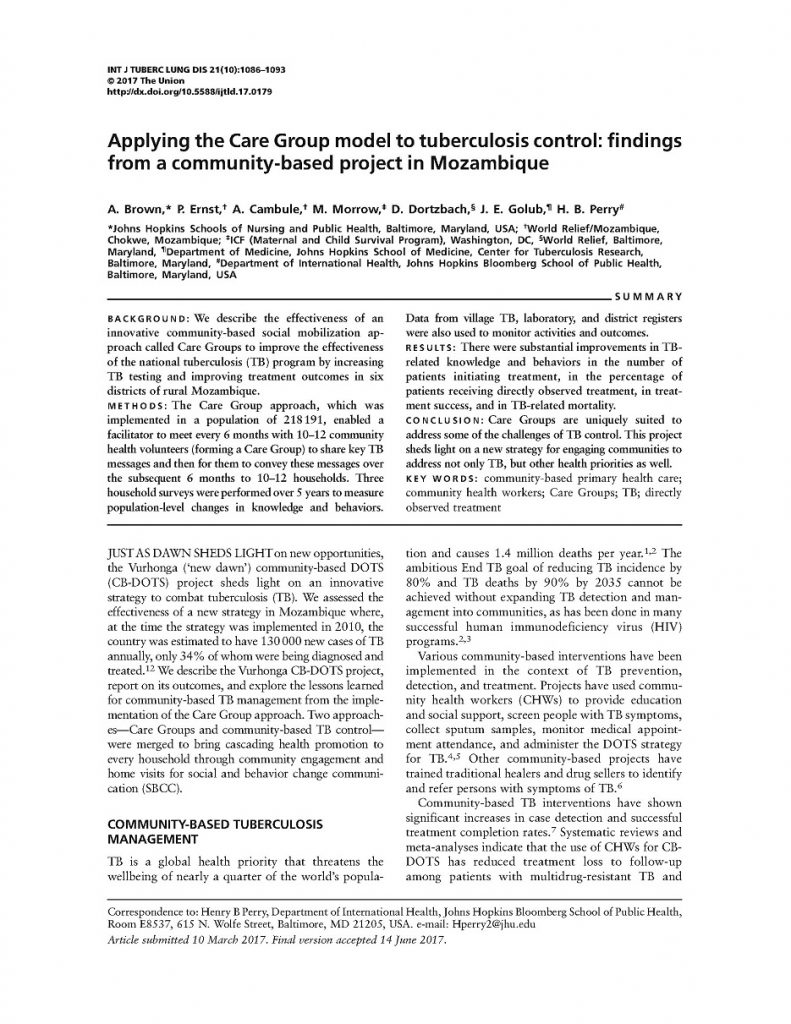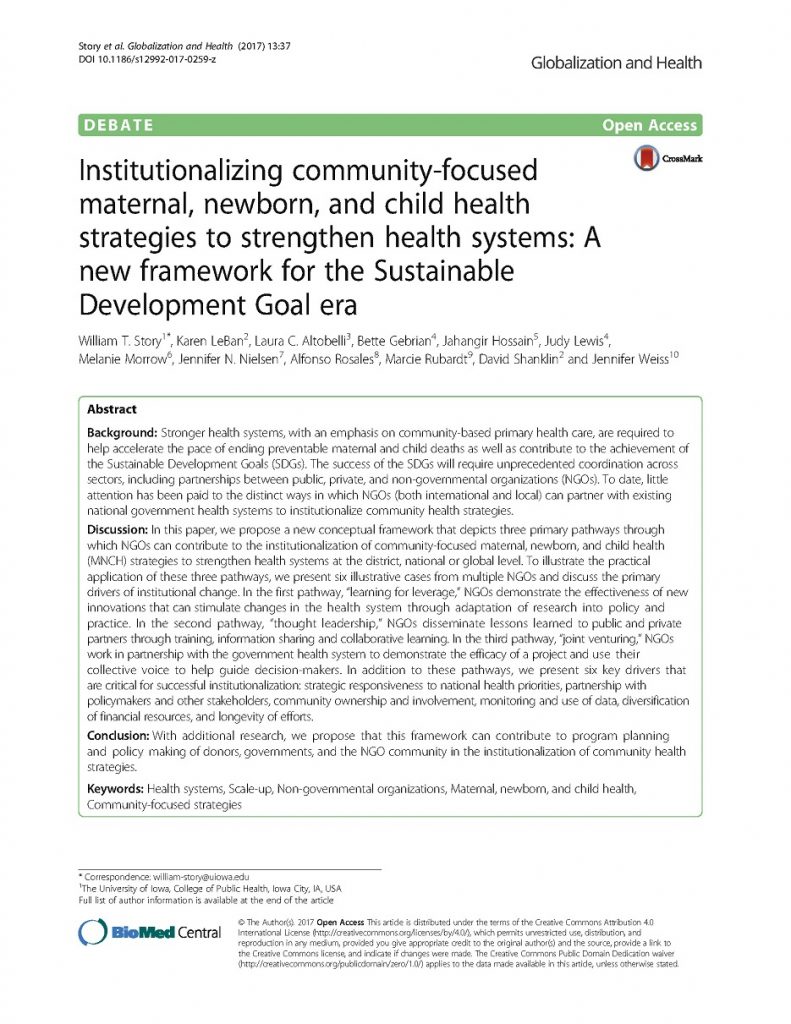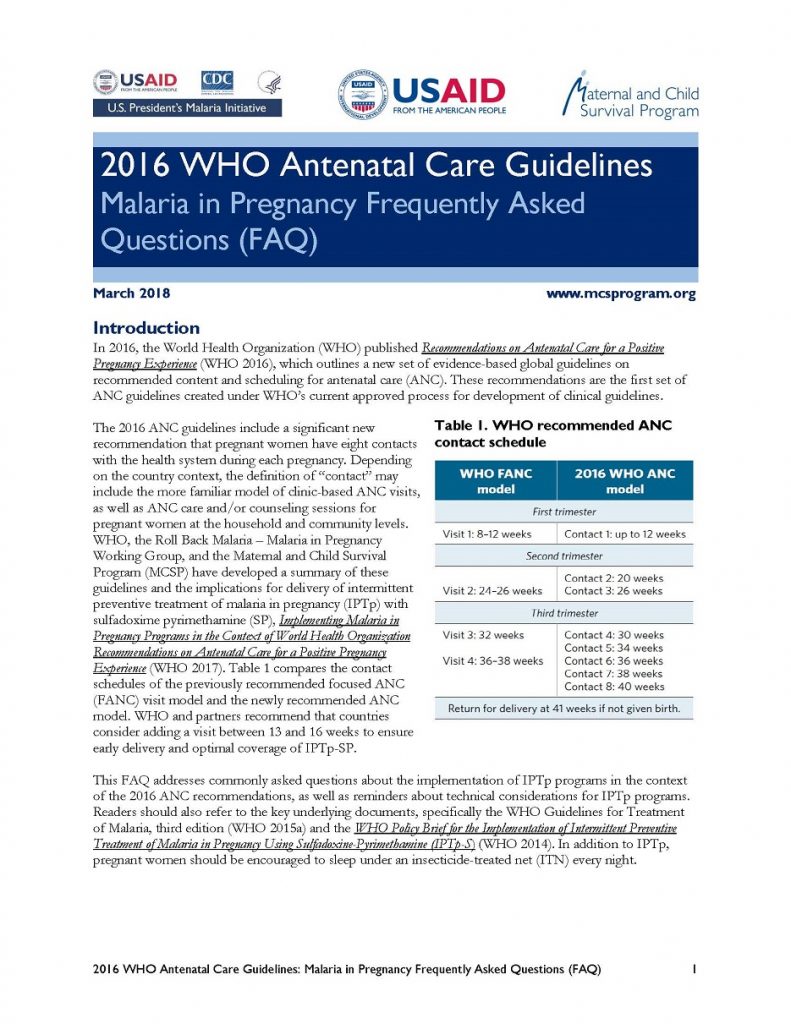
In 2016, the World Health Organization (WHO) published Recommendations on Antenatal Care for a Positive Pregnancy Experience (WHO 2016), which outlines a new set of evidence-based global guidelines on recommended content and scheduling for antenatal care (ANC). These recommendations are the first set of ANC guidelines created under WHO’s current approved process for development of […]
Read More…
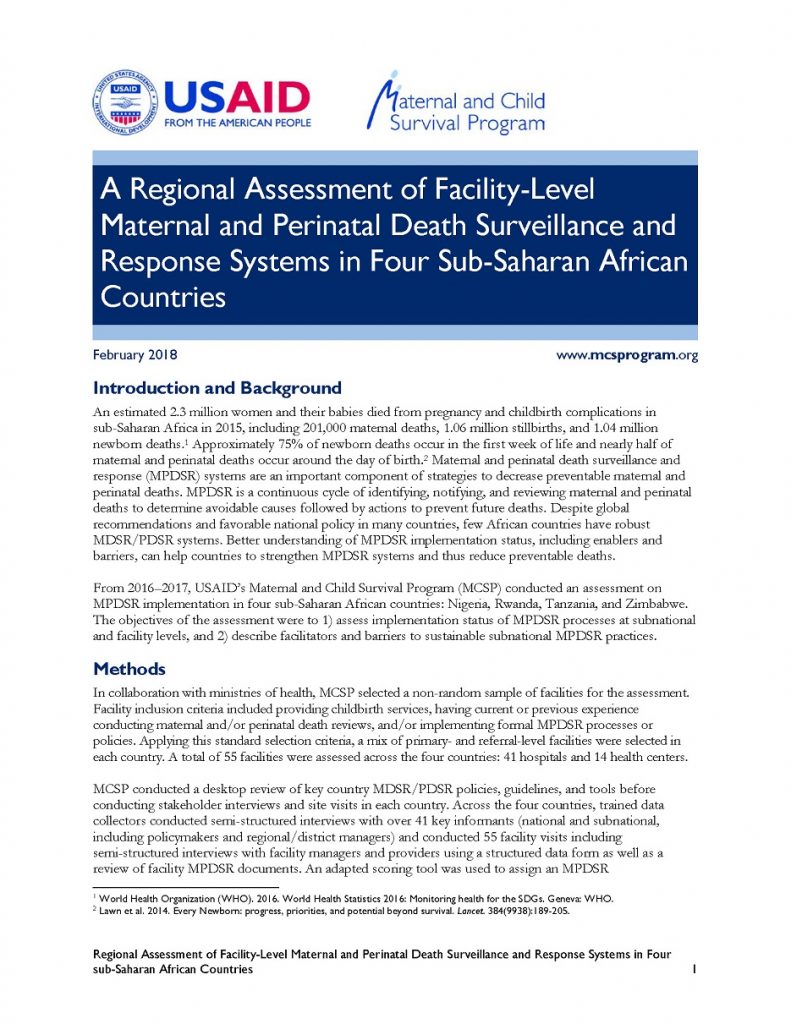
From 2016–2017, MCSP conducted an assessment on maternal and perinatal death surveillance and response (MPDSR) implementation in four sub-Saharan African countries: Nigeria, Rwanda, Tanzania, and Zimbabwe. The objectives of the assessment were to 1) assess implementation status of MPDSR processes at subnational and facility levels, and 2) describe facilitators and barriers to sustainable subnational MPDSR […]
Read More…
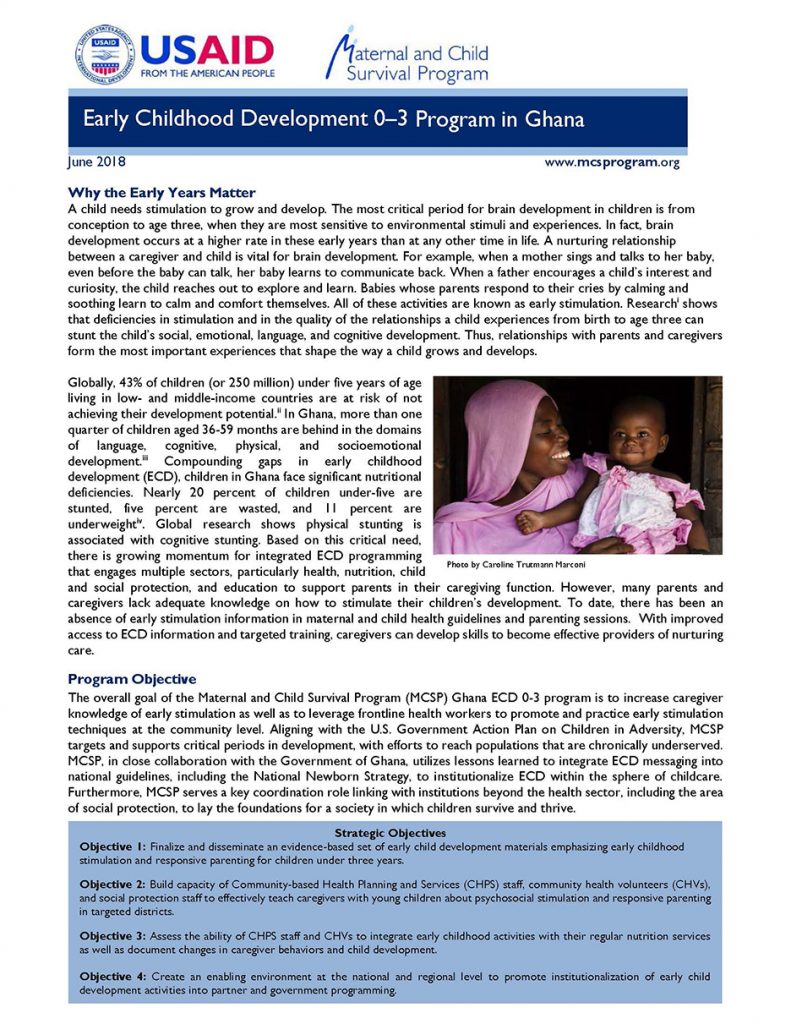
Early childhood development (ECD) supports young children’s holistic development across physical, cognitive, language and socio-emotional domains spanning the prenatal stage to early grades. The early years form the foundation for lifelong learning. This brief discusses the MCSP Ghana ECD 0-3 program’s strategic objectives and key accomplishments. […]
Read More…
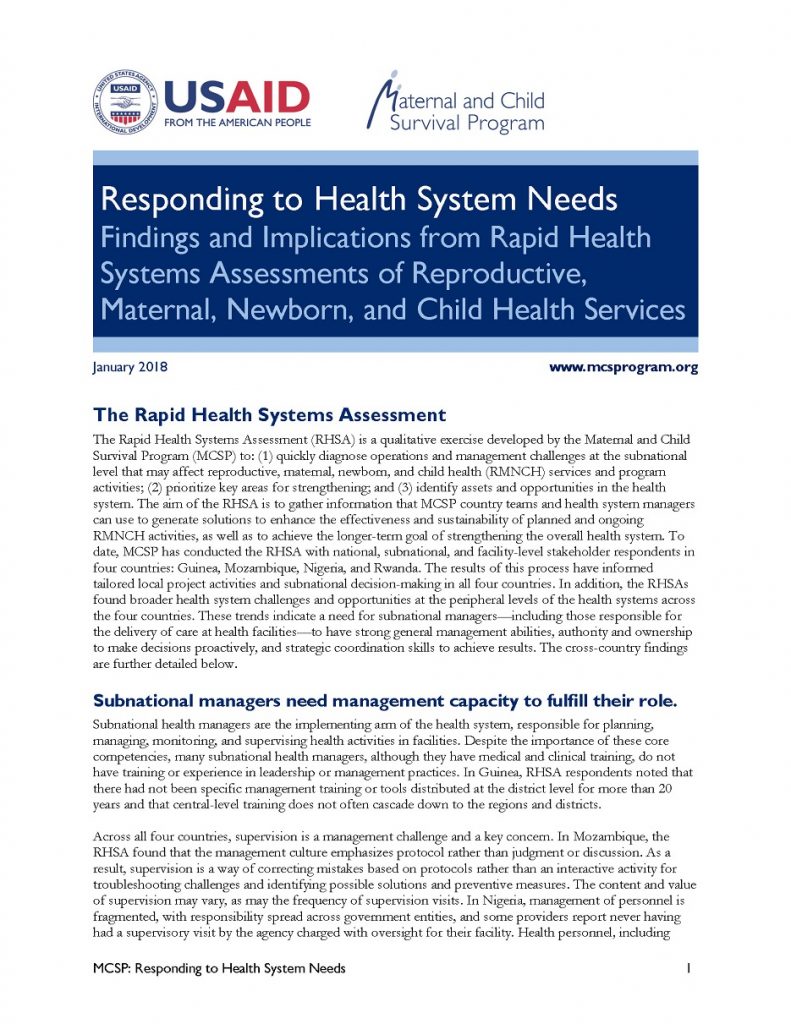
The Rapid Health Systems Assessment (RHSA) is a qualitative exercise developed by MCSP to: (1) quickly diagnose operations and management challenges at the subnational level that may affect reproductive, maternal, newborn, and child health (RMNCH) services and program activities; (2) prioritize key areas for strengthening; and (3) identify assets and opportunities in the health system. The […]
Read More…
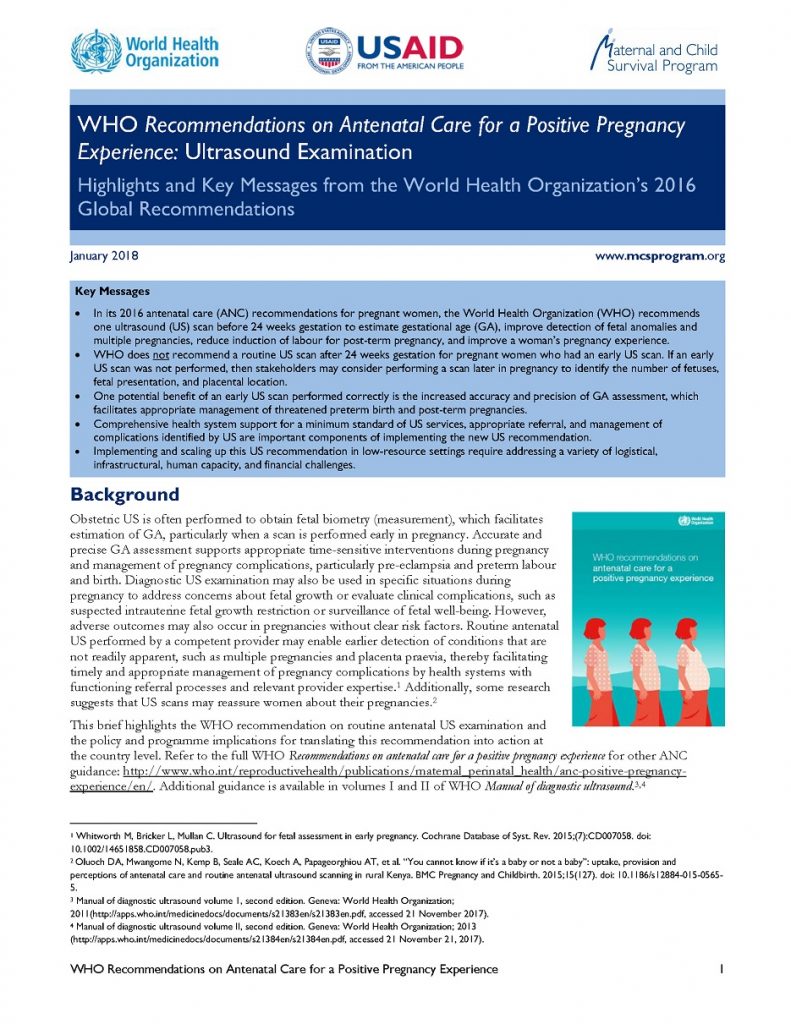
This brief highlights the WHO recommendation on routine antenatal ultrasound examination and the policy and program implications for translating this recommendation into action at the country level. Refer to the full WHO Recommendations on antenatal care for a positive pregnancy experience for other ANC guidance. Additional guidance is available in volumes I and II of […]
Read More…
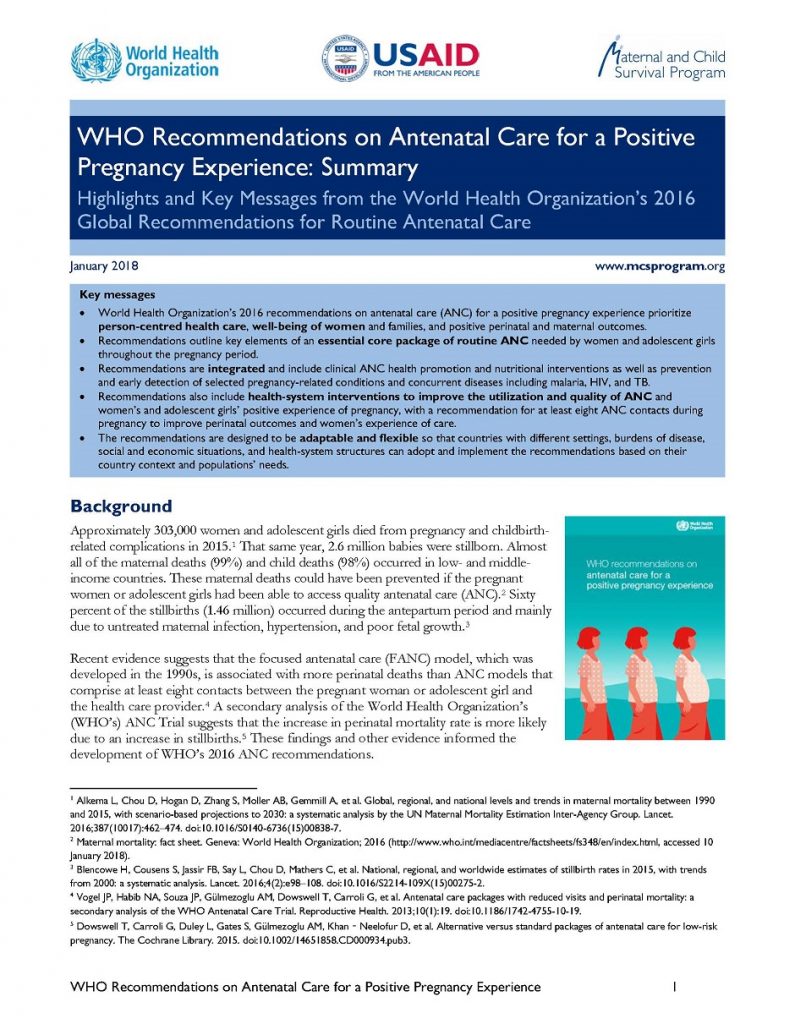
This brief highlights the WHO’s 2016 ANC recommendations and offers countries policy and program considerations for adopting and implementing the recommendations. The recommendations include universal and context-specific interventions. The recommended interventions span five categories: routine antenatal nutrition, maternal and fetal assessment, preventive measures, interventions for the management of common physiologic symptoms in pregnancy, and health system-level interventions to improve […]
Read More…
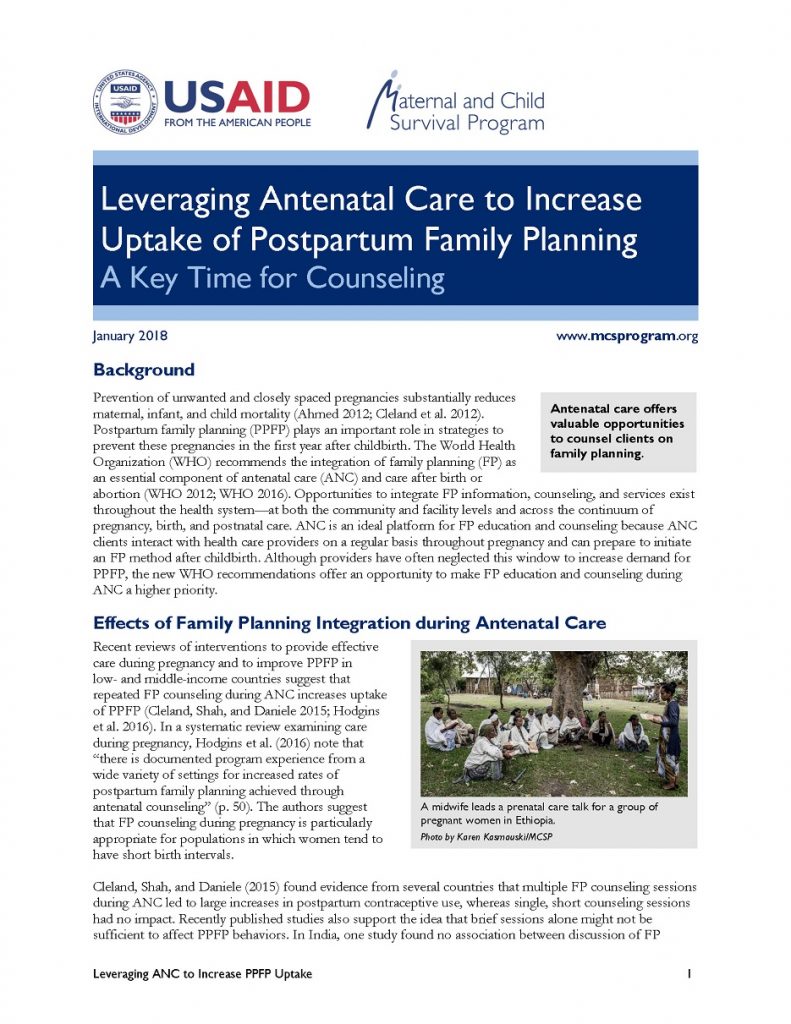
Prevention of unwanted and closely spaced pregnancies substantially reduces maternal, infant, and child mortality. Postpartum family planning (PPFP) plays an important role in strategies to prevent these pregnancies in the first year after childbirth. The World Health Organization (WHO) recommends the integration of family planning (FP) as an essential component of antenatal care (ANC) and […]
Read More…
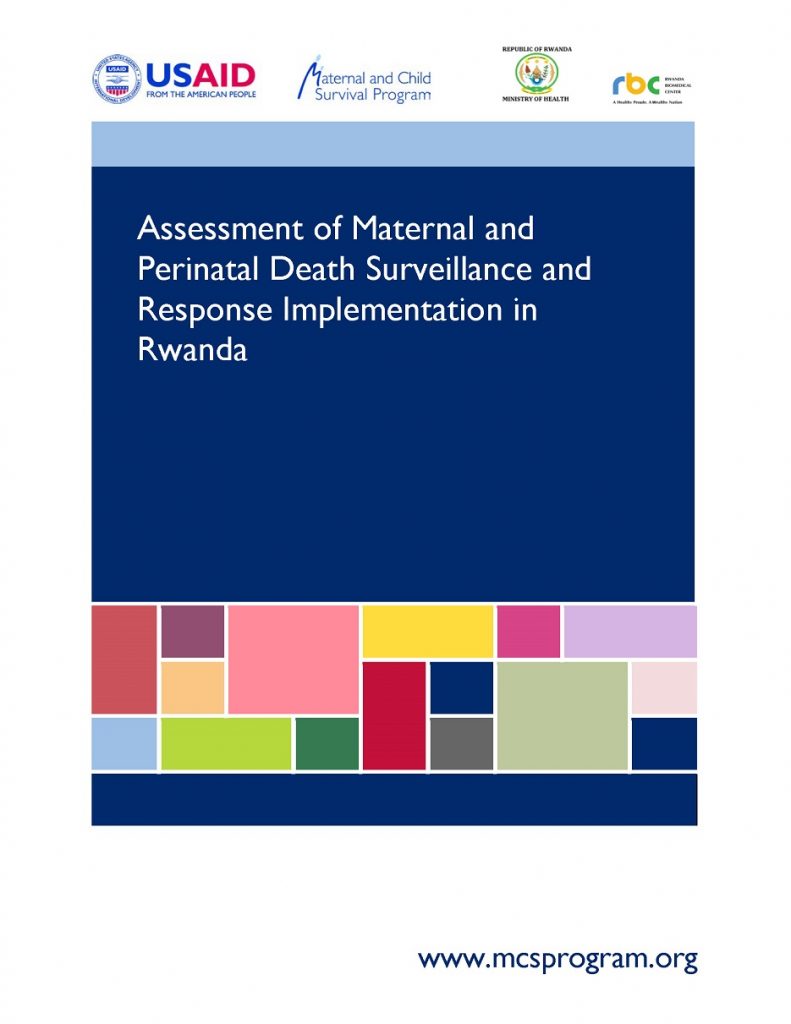
The Rwandan Ministry of Health (MOH) and USAID’s MCSP aimed to document experiences in implementing maternal death review, perinatal death review, and/or integrated maternal and perinatal death surveillance and response (MPDSR) processes in Rwanda. Rwanda was one of four countries selected as part of a multi-country assessment of MPDSR processes at the district level. The […]
Read More…

